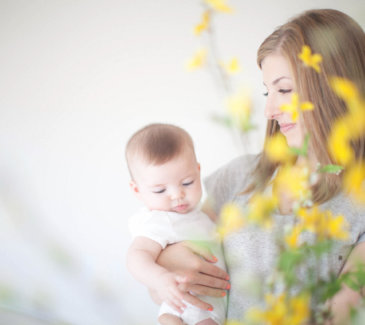Modern mothers are eaten up with guilt over things that mothers from previous generations wouldn’t have given a second thought to.
After all, as kids we were told to go outside and come back “later.” This would be unheard of today.
But today’s moms are under enormous pressure. We are sometimes made to feel guilt, shame, and unrelenting stress surrounding basic parenting choices.
And it’s a crushing burden.
An effective way of unloading this burden is to create life-giving boundaries. Boundaries are, in essence, those invisible lines that result in stress, anxiety, and chaos when crossed.
Examples of boundaries might include protecting your sleep, home environment, or schedule. While it sounds simple enough, boundaries can often be hard to put into practice for many moms. Particularly if you think they’re selfish.
Let’s explore 5 reasons many moms think boundaries are selfish, and why they’re not.
1. Moms think boundaries are selfish because we think we should be limitless.
Having grown up hearing verses about being able to do anything in Christ’s strength (Philippians 4:13), we have mistaken that to mean we should do everything that crosses our minds. Everything that seems good, anyway.
Instead of understanding Philippians 4:13 as a comforting reminder to cling to the Lord when we find ourselves in over our heads, we use the verse as a license to keep pushing ourselves past our natural limits.
2. Moms think boundaries are selfish because we confuse self-care with vain conceit.
“Do nothing out of selfish ambition or vain conceit. Rather, in humility value others above yourselves” (Philippians 2:3 NIV).
Does making sure you aren’t having a nervous breakdown, getting enough sleep to not fall down the stairs or cause an accident, and ensuring there’s enough time in your day to carry out your responsibilities sound like selfish ambition or vain conceit?
We must stop thinking that caring for ourselves is self-centered. And we need to start viewing self-care as an adult responsibility that will help us operate at maximum capacity. This will help release us to live healthy, happy lives with the energy we need to serve those we love.
3. Moms think boundaries are selfish because that’s what they learned from their own mothers.
We each have different personalities, giftings, and life circumstances. Even if you share a lot of common traits with your own mother, times are different now and so are your spouse and children.
You may feel that your mom put you and your siblings first and did it with style. And she may have! Or she may have done it because that was what was expected of her, and she was suffering in silence. Modern life is more frantic than ever, with more opportunities at a much faster pace, so parenting differently from your own mom isn’t always a bad thing.
4. Moms think boundaries are selfish because we think that means we’re prioritizing ourselves.
Most mothers intuitively feel their children are their priority. Moms who have chosen to stay home or homeschool view their ability to spend time with their kids during the day as a privilege they cherish. From this place, they’d never want to do anything that makes them feel they’re prioritizing themselves over their children.
But modern moms are also:
- • Perpetually exhausted
- • Anxious and depressed at unprecedented rates
- • Guilt ridden when they have their kids entertain themselves so they can pay bills, do home administrative tasks, or work
- • Haggard, harassed, and harried
- • Putting boundaries around rest, hygiene, time for responsibilities, and our schedules does not mean we have prioritized ourselves over our children. It means we are taking care of ourselves well so we can better love and care for our children.
5. Moms think ‘boundaries’ are selfish because it’s a buzz word in pop culture.
Romans 12:1-2 makes it clear we are not to “conform to the pattern of this world.” We see the world around us going to Hades in a handbasket and rightly so, are wary of mirroring what’s happening in our culture today. Anything that smacks of relativism, self-focus, or a reinterpretation of Scripture sets off alarm bells in us. This is a good thing.
But it can also mean that we are wary of accepting a new concept—even if it bears good godly fruit—because it seems “new.” Taking care of ourselves, however, is not new. It’s always been done. It’s just that now, minding your own mental, emotional, and physical limits has a buzzword of a name: boundaries.
“But wisdom is shown to be right by the lives of those who follow it.” Luke 7:35, NLT
When you have an overfilled schedule, no time to order or organize your life well, are exhausted, anxious, depressed, and stressed . . . is this good fruit or bad fruit?
Alternatively, does honoring your God-given human need for down time, sleep, peace, order, and harmony by organizing your private world well produce good fruit or bad fruit?
I think the answer is obvious.
If you’re struggling with living a boundary-free life or aren’t sure where to start, give yourself grace. Take one area of your life that feels the most out of control and start there. Soon, you’ll be more at peace and the good fruit of wise living will speak for itself.
For more tips on how to live within your limits and create boundaries that are life-giving, check out my new book If Mama Ain’t Happy.
Consider a few extra resources:
- Four ways mom self-care by first attending to soul-care
- Learning to be in the “No”
- Manna in the margins



